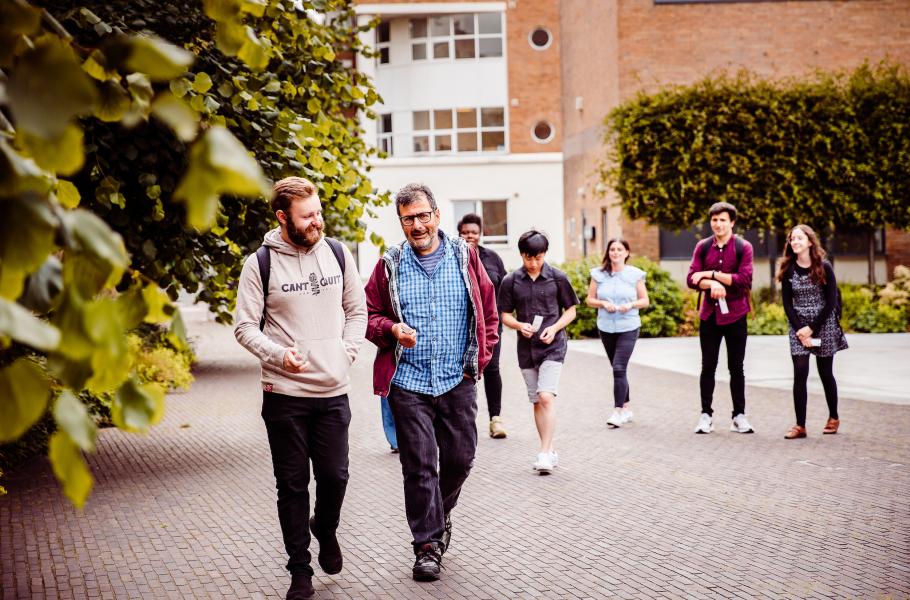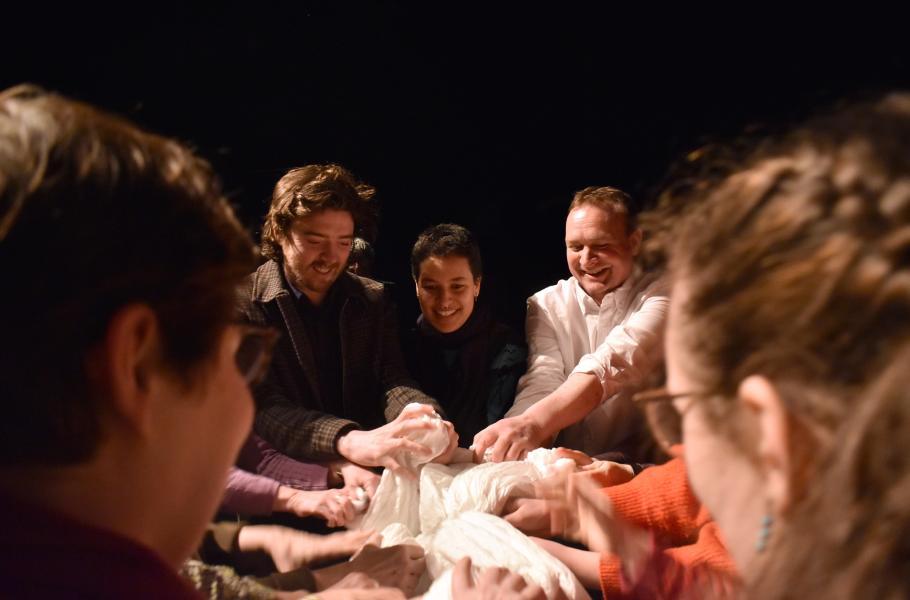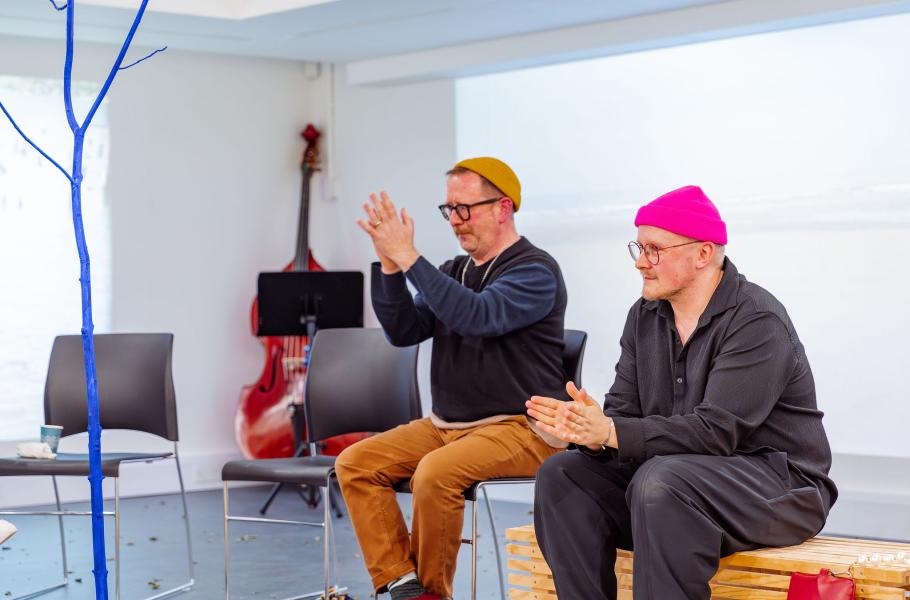Lucy Wright: Land is Political
In September 2025, Lancaster Arts hosted the final of three TEST residencies on LAND, our annual theme for this year. This residency series is for artists and academics to explore the intersections of art and land, from a range of different perspectives.
The residency team consisted of artist Lucy Wright, four academics at Lancaster University who are exploring Land in their work; Prof. Imogen Tyler from Sociology, Emma Cardwell from Economic Geography, Philip Dickinson from English Literature, Georgina Collins from Law and producer Alice Booth.
Lucy wrote the following reflections, exploring her experience of the residency week.
It’s Friday afternoon, the last day of my Lancaster Arts residency, and I am sharing my reflections on the week with the academic partners and LA team. I am standing on the stage in the Nuffield Theatre, where I have worked all week, except more formally arranged, with a wash of blue light hitting my face and the small table of works in progress that I’ve chosen to display.
It’s a long time since I stood on a stage. Drama folk often feel at home in these kinds of setting, but I stopped performing in public when I realised that my stage fright was only getting worse, not better. I give talks sometimes, but they’re scrupulously rehearsed. Three and a bit years out of academia and I’m less sure of myself when I don’t have a script.
Four days earlier, on my journey up to Lancaster, I drove past streetlights and tower blocks draped in flags of St George, thin red crosses sprayed on bus shelters and mini roundabouts. It’s Reform Party rabble-rousing and the sight of them makes my pulse quicken. I know what they mean to signify, and it sets a somewhat pessimistic tone for my residency period.
But it’s punctuated with moments of real hope. Emma (Cardwell) and I talk about Cedric Robinson and his book Black Marxism which argues that we must rescue history from national myth in order to take down racialised capitalism. Over dinner in the Water Witch pub, overlooking the canal, she introduces me to Robert Wedderburn, a British-Jamaican radical and abolitionist active in 19th century London who said, ‘if you once give up the possession of your lands, your oppressors will have the power to starve you to death’ and outlines his role, along with Thomas Spence in a whole alternative history of Britain that never made it into school textbooks. This reminds me of something Imogen (Tyler) said the day before about how enclosures still exist, they just look different now. But, she says, ‘people have always resisted capitalist enclosures’. And Emma agrees. ‘There have always been those who fought for international, multicultural solidarity.’ Look for those who are helping.
Back on stage, I confess that I have always had an ambivalent attitude towards the concept of ‘the land’, a term synonymous in my mind with Romantic poets and painters, the Völkisch movement in 30s Germany, and those with more obvious or more privileged relationships to landscapes than I do. ‘Being here has radicalised me’, I say half-joking, and when pressed explain, ‘I can see that land and who accesses it has always been political -but also that there are more allies than I knew’.
Part of my week is spent making a Brigid’s Cross—usually woven from rushes—from a full box of Rizla packets. As an artist with a background in folklore, I’m always trying to trouble assumptions that older is better, that ‘natural’ is better, that middle-class is better. Working-class histories of the land are marked by theft and agonism, but also by collectivity and resistance. I want to show that we can do better than flags and bully tactics. I want new symbols of togetherness and traditions of equity.
A big thank you to all those who shared their knowledge so generously during my time with you.
Our first residency on LAND took place in January 2025 with artist Kate Fox. You can read her blog here. Our second residency was awarded to Ellie Harrison. You can read her blog here.
Artist Lucy J Wright is based in Leeds and works at the intersection of folklore and activism, exploring how new traditions of care, equity, and interspecies kinship can emerge from overlooked folk practices. A former lead singer with the BBC Folk Award-nominated Pilgrims’ Way, she holds a PhD from Manchester School of Art and is a Visiting Research Fellow in Folklore at the University of Hertfordshire. Her work has been shown at Leeds Art Gallery, Compton Verney, and Timespan, and she is the author of Folk is a Feminist Issue and creator of Dusking, an annual participatory sun-downing tradition.





